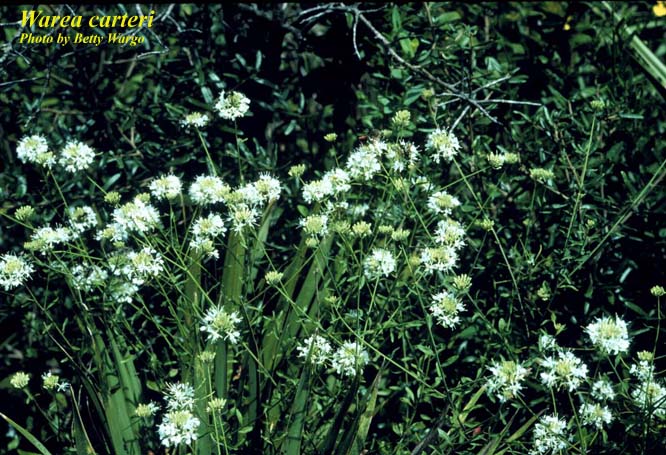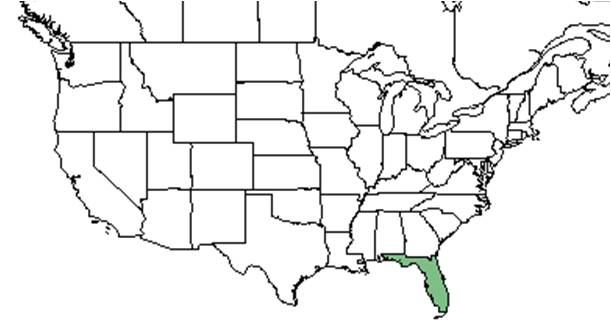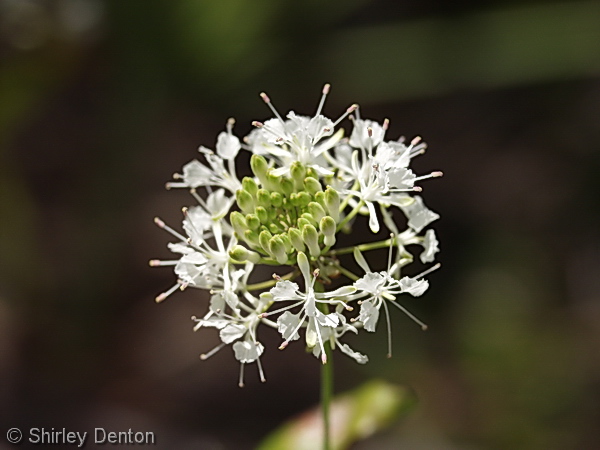Warea carteri
| Warea carteri | |
|---|---|

| |
| Photo by Betty Wargo, Atlas of Florida Vascular Plants | |
| Scientific classification | |
| Kingdom: | Plantae |
| Division: | Magnoliophyta - Flowering plants |
| Class: | Magnoliopsida – Dicotyledons |
| Order: | Capparales |
| Family: | Brassicaceae ⁄ Cruciferae |
| Genus: | Warea |
| Species: | W. carteri |
| Binomial name | |
| Warea carteri Small | |

| |
| Natural range of Warea carteri from USDA NRCS Plants Database. | |
Common name: Carter's pinelandcress
Contents
Taxonomic notes
Description
A description of Warea carteri is provided in The Flora of North America.
Distribution
Ecology
Habitat
In the Coastal Plain in Florida, W. carteri occurs in sand scrub, Quercus laevis- Serenoa repens communities (FSU Herbarium). This species is endemic to south and central Florida and is found in sandhill, scrubby flatwoods, inland and coastal scrub habitats. [1] The only known populations are in the scrub habitats of the Lake Wales Ridge in Lake, Polk, and Highlands County, Florida. The U.S. Fish and Wildlife Service considers W. carteri to be extirpated in Brevard and Miami-Dave County, Florida. Is commonly found in or near yellow sands. It is also seen in human disturbed areas such as ditches and roadsides. [2]
Phenology
Flowers and fruits in November (FSU Herbarium).
Seed dispersal
Seed bank and germination
Fire ecology
This species only appears after fire. [1]
Pollination
The following Hymenoptera families and species were observed visiting flowers of Warea carteri at Archbold Biological Station (Deyrup 2015):
Halictidae: Augochlorella aurata, Lasioglossum placidensis
Sphecidae: Ectemnius rufipes ais, Isodontia exornata
Vespidae: Zethus slossonae
Use by animals
Diseases and parasites
Conservation and Management
This species is endangered in Florida. To protect this species, land needs to be purchased or a conservation easement needs to be acquired for privately owned sandhill or scrub habitat. Manage these sites with prescribed fires and prevent trampling of habitat. Also eradicate invasive species in the area. [1]
Cultivation and restoration
Photo Gallery
Flowers of Warea carteri Photo by Shirley Denton (Copyrighted, use by photographer’s permission only), Nature Photography by Shirley Denton
References and notes
Deyrup, M.A. and N.D. 2015. Database of observations of Hymenoptera visitations to flowers of plants on Archbold Biological Station, Florida, USA.
Florida State University Robert K. Godfrey Herbarium database. URL: http://herbarium.bio.fsu.edu. Last accessed: November 2015. Collectors: W.P. Adams, Walter M. Buswell. States and Counties: Florida: Dade, Highlands. Compiled by Tall Timbers Research Station and Land Conservancy.
